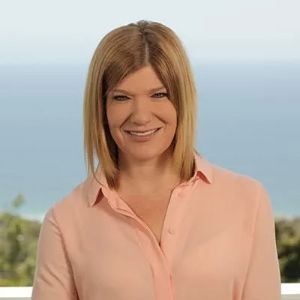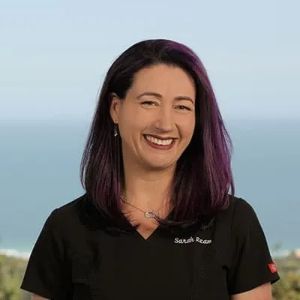






Cliffside Malibu
Verified Center
This provider's information has been quality-checked by Recovery.com's Research Team for accuracy and completeness, including center verification through appropriate third-party organizations.
Treatment Focus
This center treats substance use disorders and co-occurring mental health conditions. Your treatment plan addresses each condition at once with personalized, compassionate care for comprehensive healing.
Primary Level of Care
Offering intensive care with 24/7 monitoring, residential treatment is typically 30 days and can cover multiple levels of care. Length can range from 14 to 90 days typically.
Treatment Focus
This center treats substance use disorders and co-occurring mental health conditions. Your treatment plan addresses each condition at once with personalized, compassionate care for comprehensive healing.
Primary Level of Care
Offering intensive care with 24/7 monitoring, residential treatment is typically 30 days and can cover multiple levels of care. Length can range from 14 to 90 days typically.
Provider's Policy
We accept most insurance policies as an in-network or out-of-network provider for many commercial insurance carriers.
Cliffside Malibu
Cliffside Malibu
About Cliffside Malibu
Cliffside Malibu treats addiction and co-occurring mental health disorders in a safe and luxurious environment. They’ve adopted a unique treatment model, called Stages of Change, that meets clients where they are in their recovery journey and guides them forward. As a non-12-Step program, Stages of Change uses holistic and evidence-based treatments for whole-body healing. Cliffside Malibu also provides intensive outpatient services and sober living for clients looking to extend their care.
Customized, Person-Focused Treatment
A host of therapeutic and facility staff help ensure each client has their needs met, from detox to aftercare. Clinical and psychological assessments help Cliffside Malibu’s staff begin creating a personalized treatment plan, which adjusts further to meet the specifications and desires of each client. By using this personalized approach, and offering multiple therapy approaches, Cliffside creates a plan that is customized for clients’ needs.
Healing Addiction at Its Roots
Cliffside Malibu sees addiction as a response to pain or trauma. They use techniques like motivational interviewing, eye movement desensitization (EMDR), somatic therapy, and cognitive behavioral therapy (CBT) to uncover and comfortably process this pain, healing addiction at its core. Combined with their personalized and holistic approach, clients at Cliffside receive highly effective treatment for addiction, trauma, and co-occurring mental health conditions.
Comprehensive Treatment Options And Luxury Amenities
During detox, clinicians at Cliffside Malibu may use medications to relieve withdrawal symptoms and reduce cravings. Medication-assisted treatment can extend past detox too, depending on clients’ needs and preferences. Cliffside offers three individual therapy sessions each week, ensuring clients get the personal care they need. Group and family therapy adds to their different angles of healing, allowing for personal growth, encouragement, and widespread healing. Clients choose from private or shared rooms during treatment, enjoying up-scale amenities, plush linens, and the talents of professional chefs.

Highlights from the Center
Highlights
These highlights are provided by and paid for by the center.
Joint Commission Accredited
Co-Occurring Disorders Treatment
Holistic Approach
Certified Professionals
Center Overview
Treatment Focus
This center treats substance use disorders and co-occurring mental health conditions. Your treatment plan addresses each condition at once with personalized, compassionate care for comprehensive healing.
Joint Commission Accredited
The Joint Commission accreditation is a voluntary, objective process that evaluates and accredits healthcare organizations (like treatment centers) based on performance standards designed to improve quality and safety for patients. To be accredited means the treatment center has been found to meet the Commission's standards for quality and safety in patient care.
Insurance Accepted
Cash Pay Rates
Estimated Cash Pay Rate
Center pricing can vary based on program and length of stay. Contact the center for more information. Recovery.com strives for price transparency so you can make an informed decision.
Luxury rehab centers offer a unique blend of luxurious amenities and high-quality treatment. From private suites to gourmet dining, personal trainers to spa treatments, these facilities provide a high level of comfort and discretion.

Meet Your Care Team

Kelly Stephenson
Chief Executive Officer

Dr. Craig Smith
Medical Director
M.D., Board Certified in Addiction Medicine

Dr. Matthew Ruble
Chief Medical Officer
M.D.

Natalie Shorten
Lead Resident Health Advisor
LVN

Chelsea McElwain
Lead Resident Health Advisor
LVN

Kelsea Shorten
Licensed Vocational Nurse
LVN

Michelle Jone
Registered Nurse
RN

Karen Rubenstein
Chief Clinical Officer
LMFT

Britney Stearns
Licensed Marriage and Family Therapist
AMFT

Nika Kalili
Program Therapist
LMFT

Britney Elyse
Clinical Director
LMFT

Dane Fisher
Executive Director of Operations
CADC-I

Peter Hoang
Director of Admissions

David Vaknin
Admissions Coordinator

Brenna Nelson
Admissions Assistant

Jordan Payton-Fearnley
Admissions Coordinator

Sarah Brodsky
Massage Therapist

Bryan Hyman
Yoga Instructor

Kelli Vargo
Massage Therapist

Corey West
Personal Fitness Trainer

Adam Greenberg
Acupuncturist

Mathew Malloy
Director of Operations
CADC-II

Jonathan Kim
Case Manager
CADC

Stefanie Kosha
LVN Supervisor

Alex Cresswell
Behavioral Tech Supervisor

Ben Hinkle
Case Manager

Roxie Konis
Behavioral Tech Supervisor




Levels of Care








Your Care Options
Specializations
Alcohol
Using alcohol as a coping mechanism, or drinking excessively throughout the week, signals an alcohol use disorder.
Cocaine
Cocaine is a stimulant with euphoric effects. Agitation, muscle ticks, psychosis, and heart issues are common symptoms of cocaine abuse.
Drug Addiction
Drug addiction is the excessive and repetitive use of substances, despite harmful consequences to a person's life, health, and relationships.
Opioids
Opioids produce pain-relief and euphoria, which can lead to addiction. This class of drugs includes prescribed medication and the illegal drug heroin.
Trauma
Some traumatic events are so disturbing that they cause long-term mental health problems. Those ongoing issues can also be referred to as "trauma."
Who We Treat
Men and Women
Men and women attend treatment for addiction in a co-ed setting, going to therapy groups together to share experiences, struggles, and successes.
Approaches
Evidence-Based
A combination of scientifically rooted therapies and treatments make up evidence-based care, defined by their measured and proven results.
Non 12 Step
Non-12-Step philosophies veer from the spiritual focus of the 12-Steps and instead treat the disease of addiction with holistic or secular modalities.
Strengths-Based
Providers using a strengths-based philosophy focus on the positive traits of their patients, creating a positive feedback loop that grows confidence.
Strengths-Based
Providers using a strengths-based philosophy focus on the positive traits of their patients, creating a positive feedback loop that grows confidence.
Strengths-Based
Providers using a strengths-based philosophy focus on the positive traits of their patients, creating a positive feedback loop that grows confidence.
Therapeutic Community
Therapeutic communities allow patients to contribute to the success and progress of their community, through healthy behaviors or even basic chores.
Therapies
1-on-1 Counseling
Patient and therapist meet 1-on-1 to work through difficult emotions and behavioral challenges in a personal, private setting.
Meditation & Mindfulness
A practiced state of mind that brings patients to the present. It allows them to become fully aware of themselves, their feelings, and the present moment.
Adventure Therapy
This experiential approach uses the physical and emotional challenges of outdoor activities as tools for personal growth.
Aromatherapy
Inhaling or topically applying essential oils can help relieve stress, soothe pains, and relieve emotional distress.
Art Therapy
Visual art invites patients to examine the emotions within their work, focusing on the process of creativity and its gentle therapeutic power.
Equine Therapy
Guided interactions with trained horses, their handler, and a therapist can help patients improve their self-esteem, trust, empathy, and social skills.
Experiential Therapy
With this approach, patients heal by doing. Therapists help patients process difficult emotions to speak, using guided activities like art or dance.
Conditions We Treat
Schizophrenia
Schizophrenia is a serious mental health condition that causes hallucinations, delusions, and disordered thinking.
Personality Disorders
Personality disorders destabilize the way a person thinks, feels, and behaves. If untreated, they can undermine relationships and lead to severe distress.
ADHD, ADD
ADHD is a common mental health condition caused by dopamine imbalance. Common symptoms include inattention, hyperactivitiy, and impulsivity.
Anger
Although anger itself isn't a disorder, it can get out of hand. If this feeling interferes with your relationships and daily functioning, treatment can help.
Anxiety
Anxiety is a common mental health condition that can include excessive worry, panic attacks, physical tension, and increased blood pressure.
Bipolar
This mental health condition is characterized by extreme mood swings between depression, mania, and remission.
Burnout
Burnout entails mental and physical exhaustion, and leads to a severe lack of fulfillment. This condition is often caused by overwork.
Chronic Pain Management
Long-term physical pain can have an affect on mental health. Without support, it can also impact your daily life and even lead to addiction.
Codependency
Codependency is a pattern of emotional dependence and controlling behavior. It's most common among people with addicted loved ones.
Substances We Treat
Alcohol
Using alcohol as a coping mechanism, or drinking excessively throughout the week, signals an alcohol use disorder.
Benzodiazepines
Benzodiazepines are prescribed to treat anxiety and sleep issues. They are highly habit forming, and their abuse can cause mood changes and poor judgement.
Chronic Relapse
Consistent relapse occurs repeatedly, after partial recovery from addiction. This condition requires long-term treatment.
Co-Occurring Disorders
A person with multiple mental health diagnoses, such as addiction and depression, has co-occurring disorders also called dual diagnosis.
Cocaine
Cocaine is a stimulant with euphoric effects. Agitation, muscle ticks, psychosis, and heart issues are common symptoms of cocaine abuse.
Drug Addiction
Drug addiction is the excessive and repetitive use of substances, despite harmful consequences to a person's life, health, and relationships.
Heroin
Heroin is a highly addictive and illegal opioid. It can cause insomnia, collapsed veins, heart issues, and additional mental health issues.
Methamphetamine
Methamphetamine, or meth, increases energy, agitation, and paranoia. Long-term use can result in severe physical and mental health issues.
Languages
Aftercare
Care Designed for Your Needs
Personal Amenities
Amenities
Special Considerations
Flexible technology policies
Centers with flexible technology policies allow professionals to stay in touch with work and give patients a greater sense of connection and normalcy.
Healthy Meals are provided
Great food meets great treatment, with providers serving healthy meals to restore nutrition, wellbeing, and health.
Activities
Yoga
Yoga is both a physical and spiritual practice. It includes a flow of movement, breathing techniques, and meditation.
Off-Site Activities
Yoga
Yoga is both a physical and spiritual practice. It includes a flow of movement, breathing techniques, and meditation.
Off-Site Amenities
What people are saying
Treatment
4.0
Accommodations
4.0
Food & Nutrition
3.8
Value
3.9
Pros
- Beautiful Location (2)
Brittany P.
Treatment in 2026 • (30 days) • Reviewed 02/08/26
Former Client
•Texas
Cliffside Malibu
Steven "Rojo" Passmore
Treatment in 2022 • (90 days) • Reviewed 01/10/23
Former Client
•Storyteller
•Southern California
Joe
Reviewed 06/27/21
Review from Rehabs.com
Jennifer
Reviewed 08/11/16
Review from Rehabs.com
A. L.
Reviewed 10/20/16
Review from Rehabs.com






